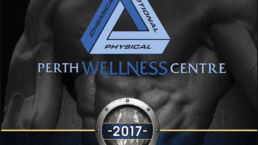Headaches and dizziness can be caused by a variety of factors. Occupational Therapists assist with this by analysing your activities of daily living and making the necessary adjustments. Occupational therapy treatment for headaches and dizziness consists of the following:
TRIGGER POINT THERAPY
Occasionally, the headaches may derive from trigger points located in our neck and shoulder. As a result the muscles become much tighter and can restrict blood flow, occasionally causing dizziness. Trigger point therapy consists of sustained deep pressure into the trigger points of the muscle which may be causing the headache. The headache referrals should alleviate shortly after applying the technique.
DAILY LIVING ACTIVITY ANALYSIS
Occupational therapy aims to identify daily activities which may be increasing your likelihood of developing trigger points and experiencing headaches and dizziness. These activities involve sleeping, exercise, driving position and work-related tasks. After identifying these factors, adjustments are made based on the individual and may include pillow recommendations, adjustments to driving position or work-related restrictions.
ERGONOMIC ASSESSMENTS
Desk based work is a heavy contributing factor to musculoskeletal injuries. Our occupational therapists conduct ergonomic assessments to analyse all factors of your desk space. For headaches and dizziness, we would primarily observe monitor height, positioning and brightness, to analyse the risk of screen induced fatigue, eye-strain and headaches.
For more information and/or help with your headaches and dizziness book in a consultation with one of our practitioners today.
Related Posts
Tips on Managing Allergies in Perth, Australia
3 September 2019
An allergic reaction is, in essence, your body's way of reacting to a potentially dangerous foreign unknown invader in the only way it knows how to. When your body encounters a potential threat in the form of an allergen most commonly, certain types of food
0 Comments8 Minutes
O’Mara Classic 2017
12 September 2017
Perth Wellness Centre is proud to announce our sponsorship with the IFBB WA for the O’Mara State Championship 2017. The O’Mara Championship is a state qualifier for the IFBB nationals that will be held in Sydney, where 5 pro cards will be given away.
0 Comments1 Minutes


